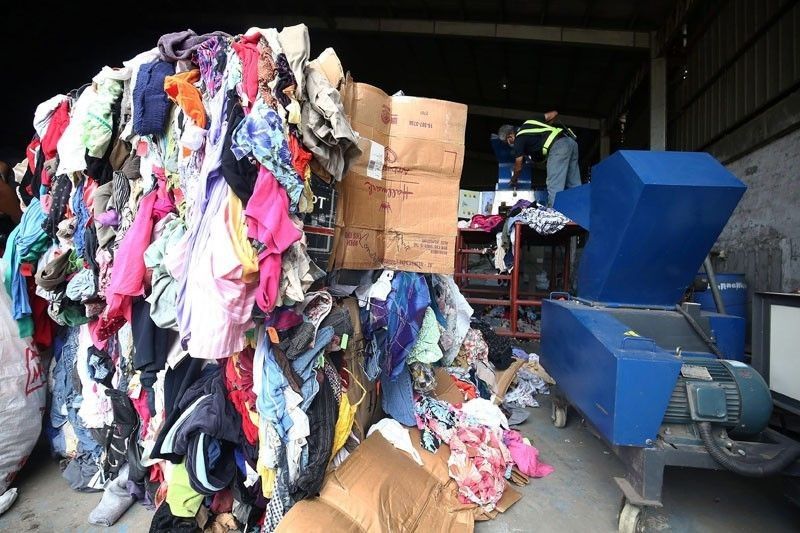‘Ukay-ukay’ shipments included in nCoV watch

MANILA, Philippines — The Bureau of Customs (BOC) has intensified monitoring of the shipment of animals and other products from China, including used clothes popularly known as ukay-ukay, as part of measures to prevent the spread of the deadly novel coronavirus (2019-nCoV) in the country.
Following the outbreak in Wuhan, China, officials said the BOC has been placed on alert since Monday to ensure public safety.
“Now, with regard to the coronavirus: number one, the commissioner has already issued a directive to our personnel to be in complete gear when conducting the initial examination for items coming in from countries that have been identified to have positive results in terms of infection of these viruses,” Customs Assistant Commissioner Vincent Moranilla said yesterday.
Maronilla added that the bureau has coordinated with the Philippine Coast Guard and the Department of Health regarding imported products with high possibility of being contaminated with nCoV.
The agency has also placed ukay-ukay items on its watchlist, particularly if these passed through countries with confirmed cases of nCoV.
“Right now, we are very high on alert especially on used clothing because ukay-ukay has a premium. We are still catching (ukay-ukay dealers). That’s one of the means where it can be transmitted,” Maronilla said.
“There is a high risk that they might carry those viruses and we don’t want that,” the official said.
The BOC official said the agency’s risk management group has been alerted to spot red flags and guard against these items.
Health Secretary Francisco Duque III yesterday welcomed the move of the BOC to strictly monitor the entry of ukay-ukay products as part of efforts to keep the 2019-nCoV out of the country.
According to Duque, it usually takes seven days for a virus to survive on “fomites” such as “tables, desk, hankies, phones, objects and microphones.”
“You name it… depends on how long the shipment travels, on how long the shipment that carried these items (will arrive here),” he noted.
Asked if the public should be advised not to patronize these products, he claimed the Department of Health (DOH) has no “expert advice on this matter.”
“We will have to wait, we’ll address the issue squarely as we get the experts to guide us on how to respond to this,” he added.
Duque maintained that the public should primarily observe basic preventive measures like personal hygiene and hand washing “as often as you can.”
Aside from used clothes, the BOC also intensified operations against contaminated imported animal products.
“We are coordinating very closely with the Department of Agriculture (DA) in treating food products coming in from these countries. We’re leaving it to the DA if they will impose a ban or some stricter measure but right now, we don’t allow any importation of food products without the corresponding license coming from the Food and Drug Administration or the DA,” Maronilla said.
The BOC is also working very closely with the task force on anti-agricultural smuggling formed by Agriculture Secretary William Dar to address the matter.
According to Maronilla, the BOC intelligence and enforcement groups are on full alert as ordered by the commissioner.
“Again, guarding against all items, not just food items – by which we have coordinated with the DOH and the DA – that might be a carrier or a source of carrying these diseases other than actual humans,” he said.
Maronilla also revealed that the government is looking closely at the impact of the virus on trade and commerce since China is a major trade partner of the Philippines.
He noted that since China is a big manufacturer, there could also be a slowdown in trading between China and many countries, including the United States, although the pattern of contamination through non-living things has not been established yet.
“The source of which is China. Not just because they are Chinese products but because some countries actually have their factories in China. Now if there is going to be this kind of problem we will be extra careful. We will be very vigilant about it,” he said. – With Sheila Crisostomo
- Latest
- Trending






























